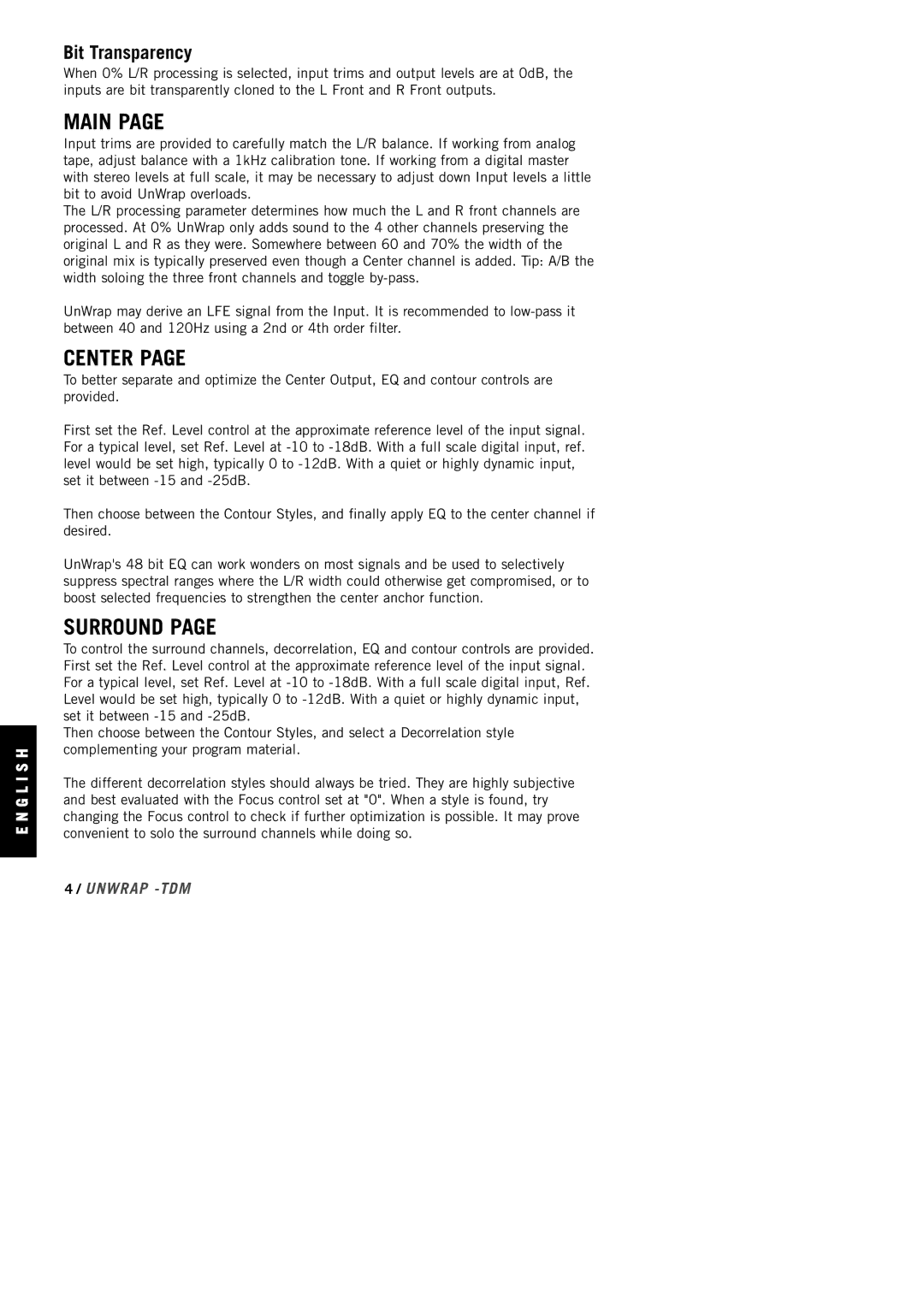E N G L I S H
Bit Transparency
When 0% L/R processing is selected, input trims and output levels are at 0dB, the inputs are bit transparently cloned to the L Front and R Front outputs.
MAIN PAGE
Input trims are provided to carefully match the L/R balance. If working from analog tape, adjust balance with a 1kHz calibration tone. If working from a digital master with stereo levels at full scale, it may be necessary to adjust down Input levels a little bit to avoid UnWrap overloads.
The L/R processing parameter determines how much the L and R front channels are processed. At 0% UnWrap only adds sound to the 4 other channels preserving the original L and R as they were. Somewhere between 60 and 70% the width of the original mix is typically preserved even though a Center channel is added. Tip: A/B the width soloing the three front channels and toggle
UnWrap may derive an LFE signal from the Input. It is recommended to
CENTER PAGE
To better separate and optimize the Center Output, EQ and contour controls are provided.
First set the Ref. Level control at the approximate reference level of the input signal. For a typical level, set Ref. Level at
Then choose between the Contour Styles, and finally apply EQ to the center channel if desired.
UnWrap's 48 bit EQ can work wonders on most signals and be used to selectively suppress spectral ranges where the L/R width could otherwise get compromised, or to boost selected frequencies to strengthen the center anchor function.
SURROUND PAGE
To control the surround channels, decorrelation, EQ and contour controls are provided. First set the Ref. Level control at the approximate reference level of the input signal. For a typical level, set Ref. Level at
Then choose between the Contour Styles, and select a Decorrelation style complementing your program material.
The different decorrelation styles should always be tried. They are highly subjective and best evaluated with the Focus control set at "0". When a style is found, try changing the Focus control to check if further optimization is possible. It may prove convenient to solo the surround channels while doing so.
